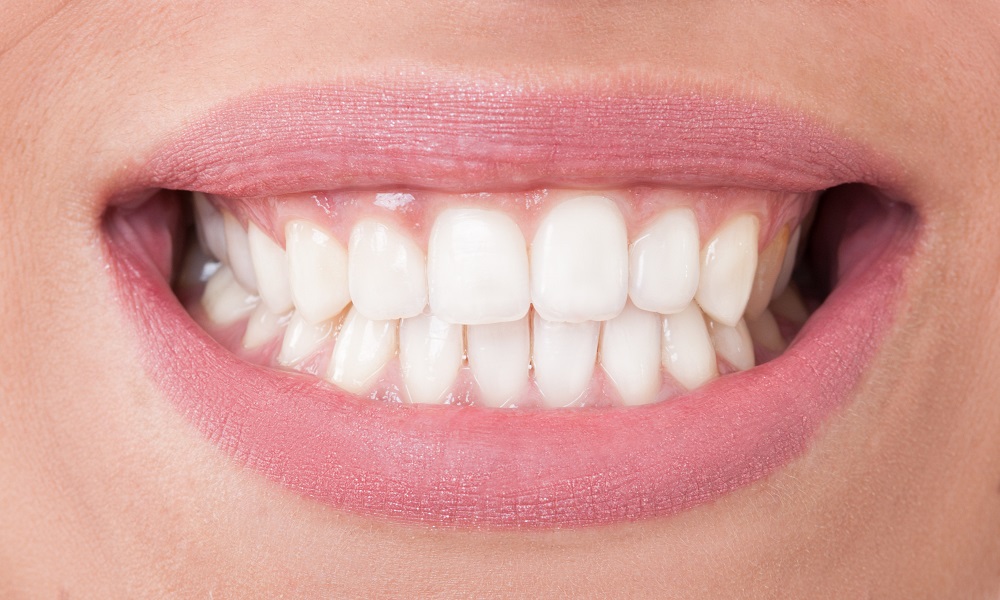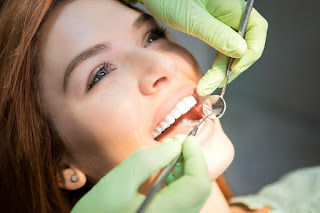Gum recession is a common dental issue, especially among older adults. It occurs when gum tissue pulls away from the teeth, exposing their roots. This condition can lead to increased sensitivity, a higher risk of decay, and even losing teeth if left untreated. For seniors, understanding gum recession is a necessity to maintain oral health and overall well-being.
The condition progresses gradually, often going unnoticed until symptoms like tooth sensitivity or noticeably longer teeth become apparent. Many older adults may also experience discomfort with hot/cold foods or brushing their teeth. Gum recession can lead to infections, cavities near the roots, and even loosening of teeth. Fortunately, these issues can be prevented and a healthy smile can be preserved by knowing the signs and causes of gum recession.
What Is Gum Recession?
Gum recession is what happens when the gums pull back from the teeth, exposing more of the tooth or its root. Over time, this creates small gaps, or “pockets,” between the teeth and gums, where harmful bacteria can gather. These bacteria can cause further damage, leading to bone loss and other serious oral health problems.
Many older adults may not notice gum recession until it’s progressed significantly. Common signs include sensitive teeth, visible lengthening of teeth, notches near the gum line, and occasional bleeding after brushing or flossing. Addressing these symptoms as soon as possible plays a huge role in preventing more severe dental issues down the line.
What Causes Gum Recession?
Aging and lifestyle habits are significant contributors to gum recession. The primary causes include:
- Aging: Nearly 88% of adults over 65 experience some degree of gum recession, often considered a natural part of aging.
- Aggressive Brushing: Brushing too hard or using a hard-bristled toothbrush can erode enamel and gum tissue over time.
- Periodontal Disease: Chronic gum infections destroy the tissue and bone that support teeth.
- Dry Mouth: Common among older adults due to medications or health conditions, dry mouth weakens gum tissue and increases the risk of damage.
- Tobacco Use: Smoking or chewing tobacco causes plaque buildup, leading to inflammation and gum damage.
- Misaligned Teeth or Grinding: Uneven bites or clenching can place excessive pressure on gums, causing them to recede.
- Past Hormonal Fluctuations: Hormonal changes earlier in life, like menopause or pregnancy, can make gums more susceptible to damage.
Understanding these causes can help seniors and other adults recognize risk factors and take proactive steps to keep their gums healthy.
Treatment Options for Gum Recession
Treatment for gum recession varies based on how severe the case is. Non-surgical approaches may suffice for mild occurrences, while advanced cases often require surgical intervention.
- Non-Surgical Treatments:
- Dentists may recommend desensitizing toothpaste to reduce discomfort or scaling and root planing to remove plaque and tartar from below the gum line. Infections may also be treated with antibiotics.
- Surgical Interventions:
- Gum grafting is an effective method for restoring lost gum tissue by transferring tissue from another part of the mouth to the affected area.
- Flap surgery involves cleaning deep gum pockets and securing the tissue to reduce bacterial buildup and protect tooth roots.
For seniors who may feel nervous about these procedures, sedation dentistry in NJ offers a stress-free way to receive necessary care, ensuring a comfortable experience.
Preventing Gum Recession
Preventing gum recession requires adopting consistent oral care habits and addressing potential risk factors. Brushing gently with a soft-bristled toothbrush is essential to prevent damaging the gums and enamel. Regular oral hygiene routines, like brushing twice daily, flossing, and using antimicrobial mouthwash, help remove harmful bacteria and keep gums in good condition. Seniors should prioritize biannual dental checkups and cleanings, which allow dentists to detect early signs of gum disease and remove tartar buildup.
Managing dry mouth also plays a huge role in prevention. Staying hydrated and using saliva substitutes can help protect gum tissue and reduce irritation. Avoiding tobacco products is equally important, as smoking significantly increases the risk of gum damage. By paying attention to their oral health, older adults can seek timely treatment and minimize long-term complications. These steps support healthier gums but also contribute to improved overall quality of life.
Why Seniors Should Prioritize Gum Health
Gum recession can lead to more than just tooth sensitivity or aesthetic concerns. Complications like bone loss, loose teeth, and increased susceptibility to decay can severely impact an older adult’s quality of life. By addressing gum health proactively, seniors can reduce the risk of these issues and maintain their smiles longer. For those who experience anxiety about dental procedures, sedation dentistry in NJ offers a comfortable, relaxing solution to ensure the best possible care.
Take Charge of Your Gum Health Today
If you’re noticing signs of gum recession, such as sensitive teeth or changes in gum appearance, it’s important to consult with a dentist who understands the specific needs of older adults. Early treatment can prevent more severe complications, while ongoing care helps preserve both the health and appearance of your smile.
Don’t wait—schedule a consultation today to learn more about your options. Sedation dentistry in NJ can make your dental visits stress-free, providing the care you need in a comfortable environment. Protecting your gums is a key step in maintaining a healthy, confident smile for years to come.
Resources:
https://my.clevelandclinic.org/health/diseases/22753-gum-recession
https://www.webmd.com/oral-health/receding_gums_causes-treatments
https://www.merckmanuals.com/home/mouth-and-dental-disorders/periodontal-diseases/gum-recession
https://www.healthline.com/health/dental-oral-health-receding-gums



